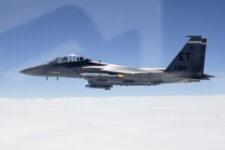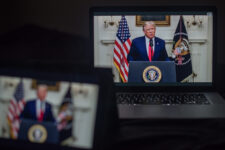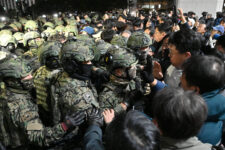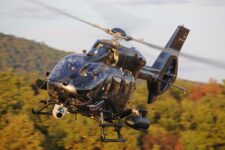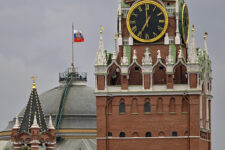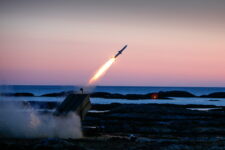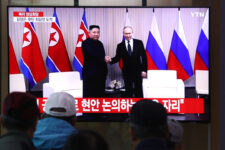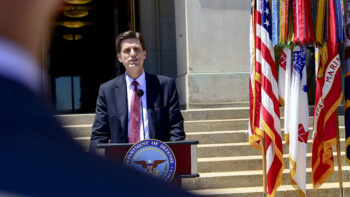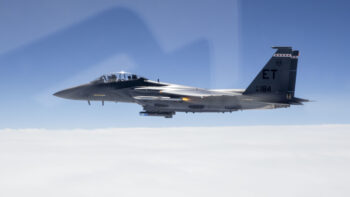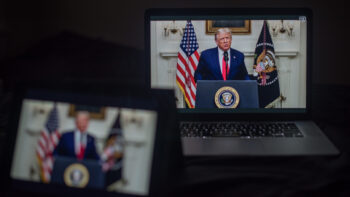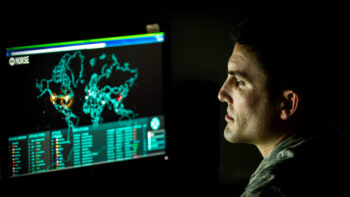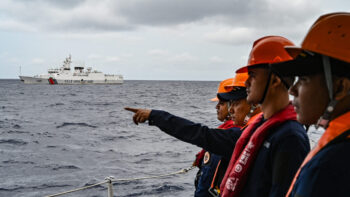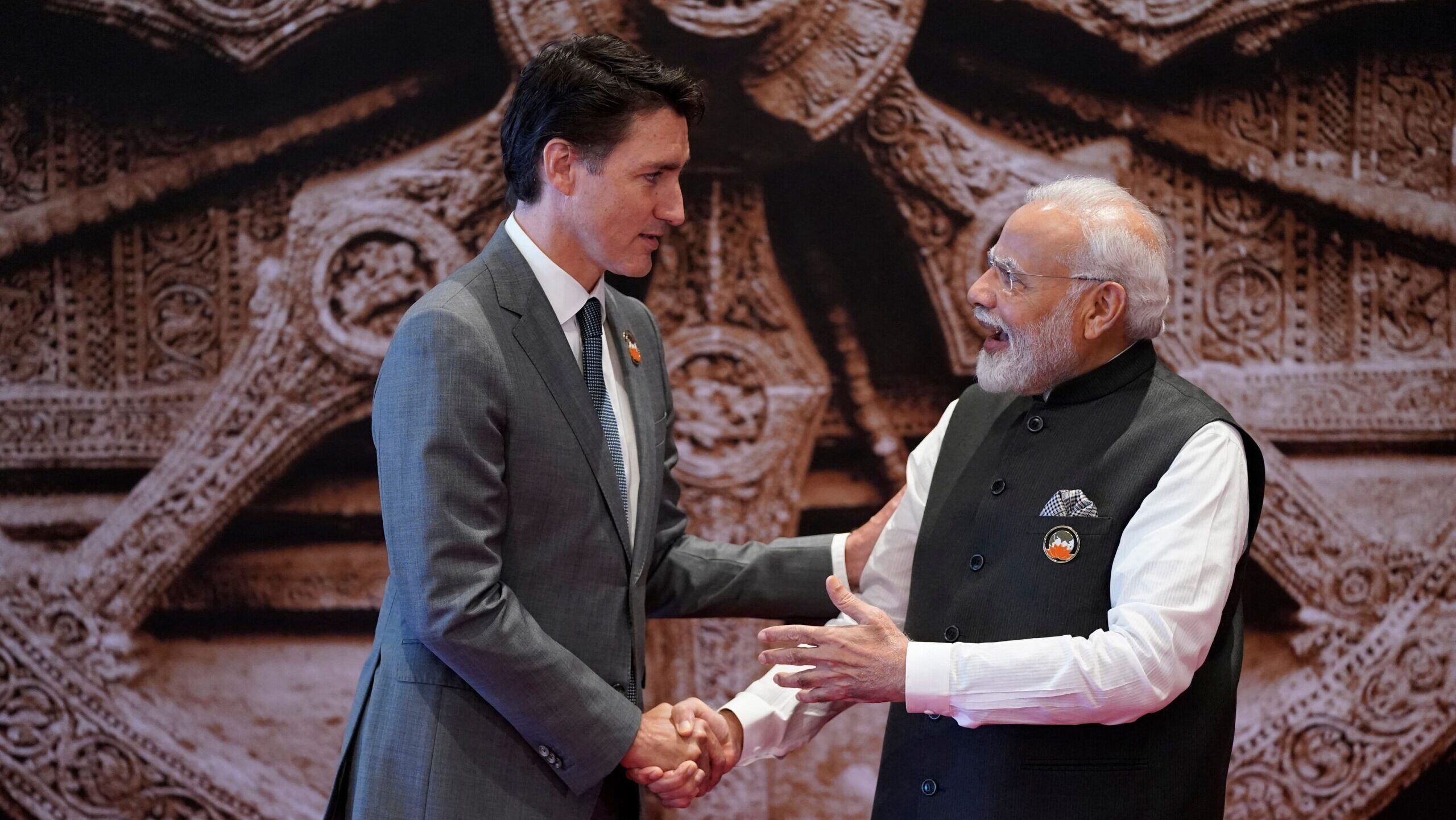
India’s Prime Minister Narendra Modi (R) shakes hand with Canada’s Prime Minister Justin Trudeau ahead of the G20 Leaders’ Summit in New Delhi on September 9, 2023. (EVAN VUCCI/POOL/AFP via Getty Images)
WASHINGTON — The accusation by Canada that the Indian government may have taken part in a political assassination on Canadian soil has thrust America, and the Pentagon in particular, in an awkward spot between one of its closest allies and a country Washington views as a linchpin to countering China.
In an extraordinary rebuke to a partner nation Monday, Canadian Prime Minister Justin Trudeau stood in front of parliament and said law enforcement was “actively pursuing credible allegations of a potential link between agents of the government of India” and the killing of Hardeep Singh Nijjar, a Canadian citizen whom New Delhi had declared a terrorist several years ago over his support of an independent Sikh state.
Any such killing, Trudeau said, would constitute “an unacceptable violation of our sovereignty.” Ottawa has since ejected an Indian diplomat, reportedly the head of Delhi’s security service in country, out of Canada.
India, in turn, announced an unnamed Canadian official would be ejected from India, and said it “rejects” the accusations. “Allegations of Government of India’s involvement in any act of violence in Canada are absurd and motivated,” the Ministry of External Affairs said in a statement. “We reject any attempts to connect Government of India to such developments.”
While the United States has said it is “deeply concerned” about the accusations, it’s unclear exactly what comes next. According to the Washington Post, Canada had requested the US condemn India over the killing as well, something Washington declined to do in order to not anger India, a nation it has courted for several years as a way to check China in the Indo-Pacific. Reuters, meanwhile, reported that US intelligence was involved in helping Canada put together the case against Delhi. CSIS, the Canadian intelligence service, declined to comment to Breaking Defense on the case and what help it’s getting from American agencies.
Washington’s balancing act with India is only going to get tougher now that Canada — one of the Five Eyes nations who share access to the highest levels of intelligence information — is publicly accusing India of political assassination.
Derek Grossman, a regional analyst with the RAND Corporation, summed up the situation Monday on Twitter by saying the “Biden admin is in a no-win situation with this latest bombshell of India-Canada news. If it sides with Ottawa, then New Delhi will be up in arms and, once again, question the loyalty of Washington. If it sides with New Delhi, then the US is contradicting a NATO ally.
“Canada’s bombshell accusation today against India could be most significant test of strength of US-India partnership since early 2000s. That said, US will pull out all the stops to keep India close by its side to help counter China, which could mean staying out of this mess,” he added.
Thomas Juneau, a security expert with the University of Ottowa, added on Twitter that “In theory it would be nice to have more proactive and open support for the US on this, but realistically, this is pretty much the best Canada can hope for. Canada better get used to being alone, or more alone than in the past, to deal with threats like this.”
India And US: A Delicate Balancing Act
As recently as June, the Pentagon was praising the “rapidly expand[ing]” mil-to-mil relationship between the US and India.
“India will be a critical strategic partner with the United States in the coming decades. India’s growing commitment to playing a more engaged international role, including in the Indo-Pacific Quad, demonstrates a new and growing willingness to join the United States to protect and advance a shared vision of a free, open and rules-based global order,” a DoD report said, paraphrasing an unnamed senior official said. (A spokesperson for OSD referred questions on the situation to the government of Canada.)
The delicate dance of growing ties with India was on display today at an event put on by the Hudson Institute on India-US relations.
The event, organized long in advance of Monday’s news, started with a keynote from India’s ambassador to the US, Taranjit Singh Sandhu. His remarks were livetreamed rather than in person, with an overall positive attitude that took a stern turn in tone towards the end.
“I am also given to understand that today’s discussion will also touch upon a very small minority of elements, instigated by selfish and vested interests, who try to advocate violence or propagate separatism or legitimize terrorism against India in the United States,” Sandhu said in what seemed to be a reference to Nijjar, or at least individuals such as Nijjar who advocate for independent states within India.
“Violence or threats of violence by such actors cannot be condoned. I am confident these vested interests, with hardly any credibility or support base, cannot detract progress in the bilateral partnership, which is rooted in the development and prosperity of the people,” the ambassador continued, before declaring US-India relations nearing a “watershed” moment of accord.
Closing the event was Siddharth Iyer, the director for South Asia policy in the Office of the Secretary of Defense. Hudson expert Aparna Pande, the moderator for the discussion, encouraged questioners to stick with issues related to national security within Iyer’s portfolio, but a question about whether the US can view India through the lens of the the “traditional” alliance system led to Iyer seemingly to acknowledge there may be required tradeoffs in the relationship.
“The US-India partnership is broad based. It doesn’t contain any one issue, it’s not linked to one sort of operational priority of technological area. It’s deep and multifaceted, and I think the areas where we look to cooperate are in those spaces where our interests overlap,” Iyer said.
“We recognize that the United States and India have shared interests, and there are areas where we don’t align with each other perfectly. The national defense strategy places a premium on advancing partnerships with a number of allies and partners across the Indo-Pacific, and the very concept of integrated deterrence means we need to meet our allies and partners where they are. We can’t pursue a with us or against us approach.”
Minutes later, Iyer was asked to close out the event. His summary puts the US’s need to work with India to counter China in stark terms.
“This relationship is one of the top priorities for the department,” he said. “Our belief is that getting the US-India relationship right is not just necessary, its essential to achieving our strategy in the Indo-Pacific. So there’s a broad and deep to making that happen.”
